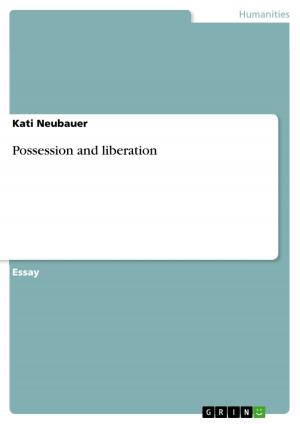The role of the people in the two works of Machiavelli: The Prince and The Discourses
Nonfiction, Social & Cultural Studies, Political Science, Politics, History & Theory| Author: | Irina Wolf | ISBN: | 9783640414222 |
| Publisher: | GRIN Publishing | Publication: | August 24, 2009 |
| Imprint: | GRIN Publishing | Language: | English |
| Author: | Irina Wolf |
| ISBN: | 9783640414222 |
| Publisher: | GRIN Publishing |
| Publication: | August 24, 2009 |
| Imprint: | GRIN Publishing |
| Language: | English |
Seminar paper from the year 2001 in the subject Politics - Political Theory and the History of Ideas Journal, grade: A, American University of Central Asia, course: Political Thought, language: English, abstract: In 'The Prince' Machiavelli refers to the people as inhabitants, subjects, private citizens, populace and two years later, writing 'The Discourses' he also uses the words: masses, the general public, the plebs, and 'have-nots'. Is there a difference between those words or they generally mean the same? Why does Machiavelli in 'The Discourses' add new words when he is talking about 'the people'? Is it due to the different contexts or the interval of time between writing these two works influenced the thinker and changed his view on the role of the populace in any political system? Answering those questions requires analysis of both books and deep understanding of the purposes of writing them
Seminar paper from the year 2001 in the subject Politics - Political Theory and the History of Ideas Journal, grade: A, American University of Central Asia, course: Political Thought, language: English, abstract: In 'The Prince' Machiavelli refers to the people as inhabitants, subjects, private citizens, populace and two years later, writing 'The Discourses' he also uses the words: masses, the general public, the plebs, and 'have-nots'. Is there a difference between those words or they generally mean the same? Why does Machiavelli in 'The Discourses' add new words when he is talking about 'the people'? Is it due to the different contexts or the interval of time between writing these two works influenced the thinker and changed his view on the role of the populace in any political system? Answering those questions requires analysis of both books and deep understanding of the purposes of writing them















